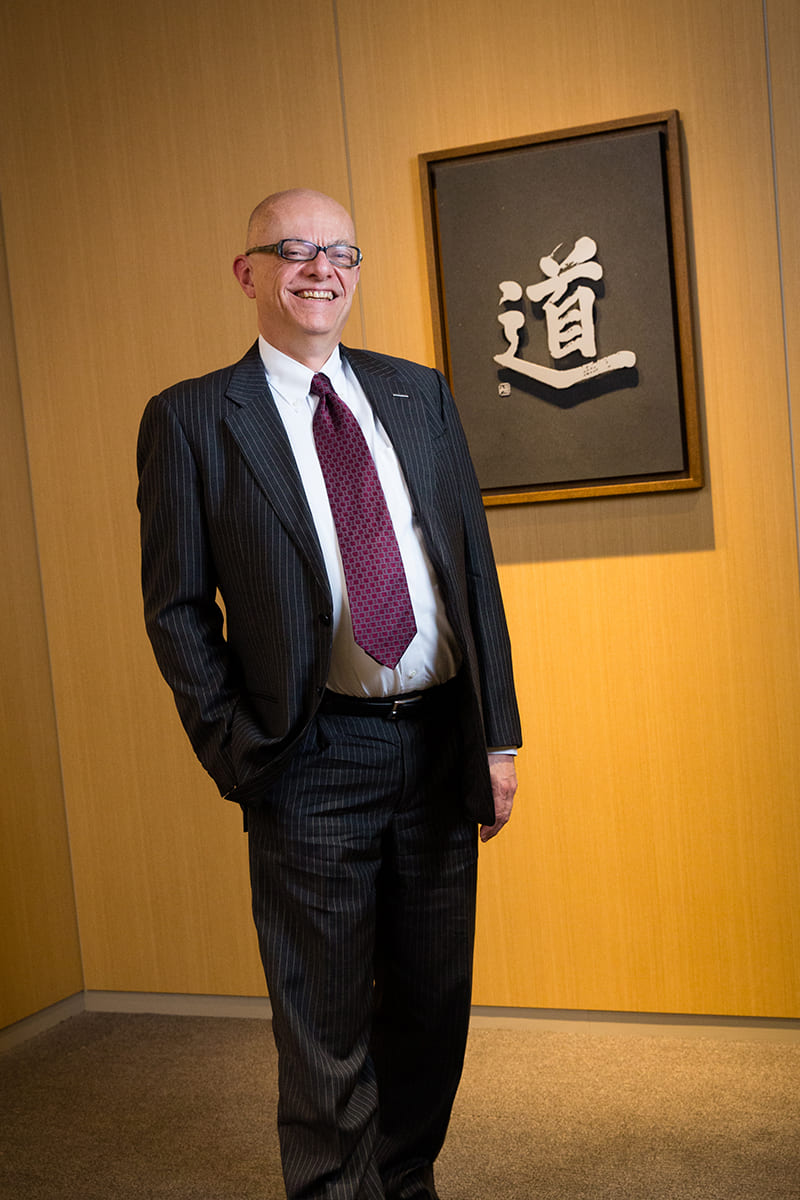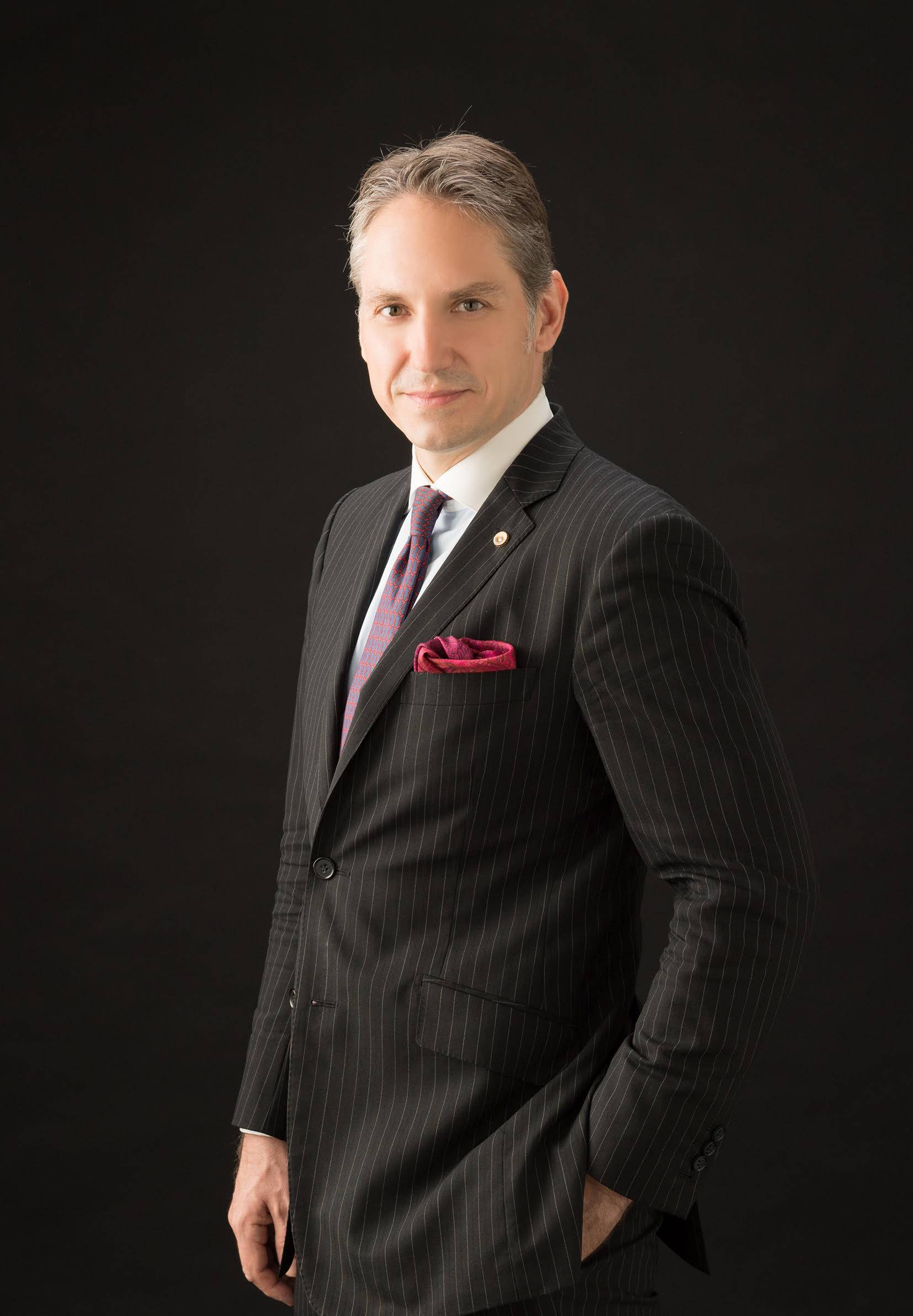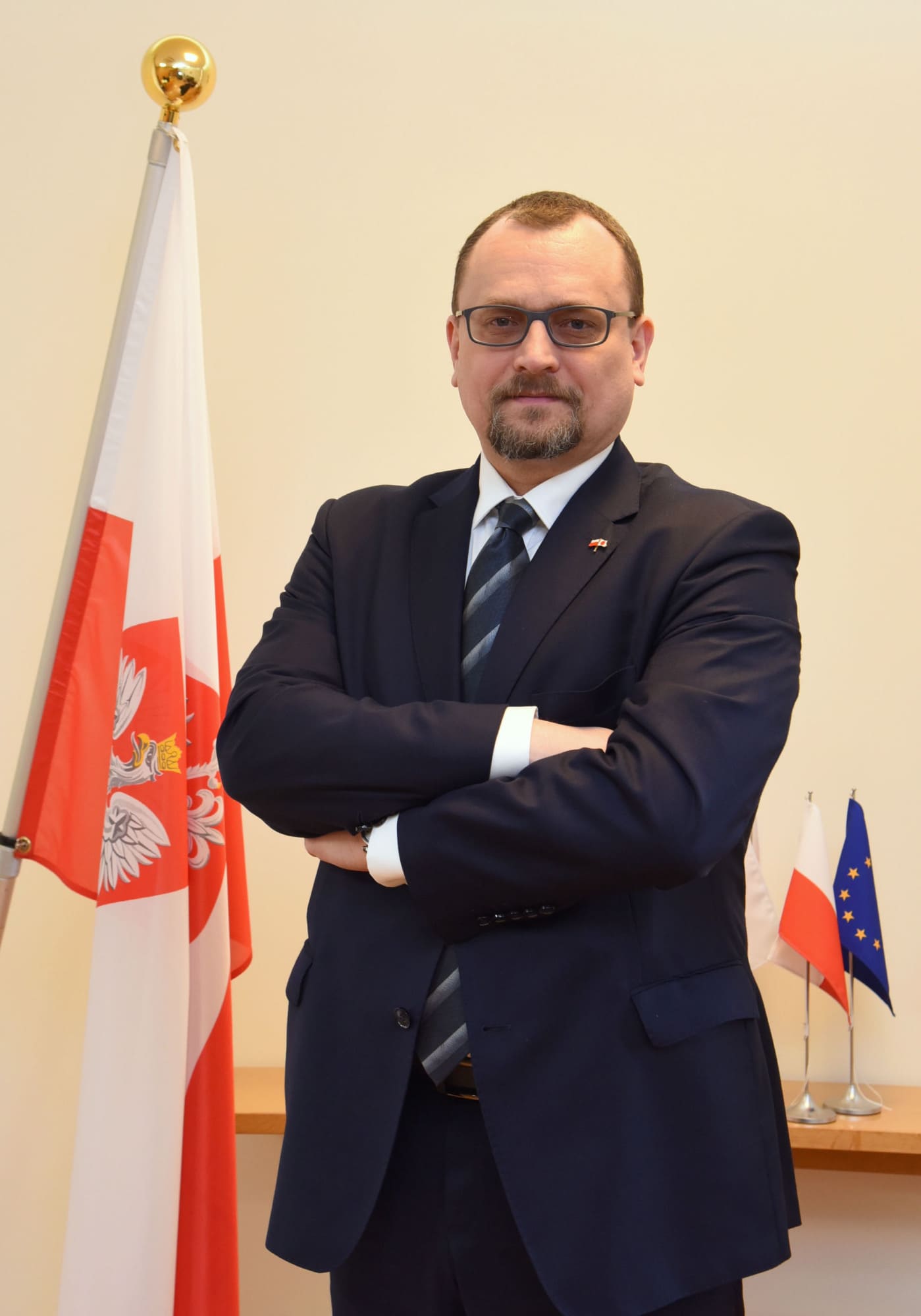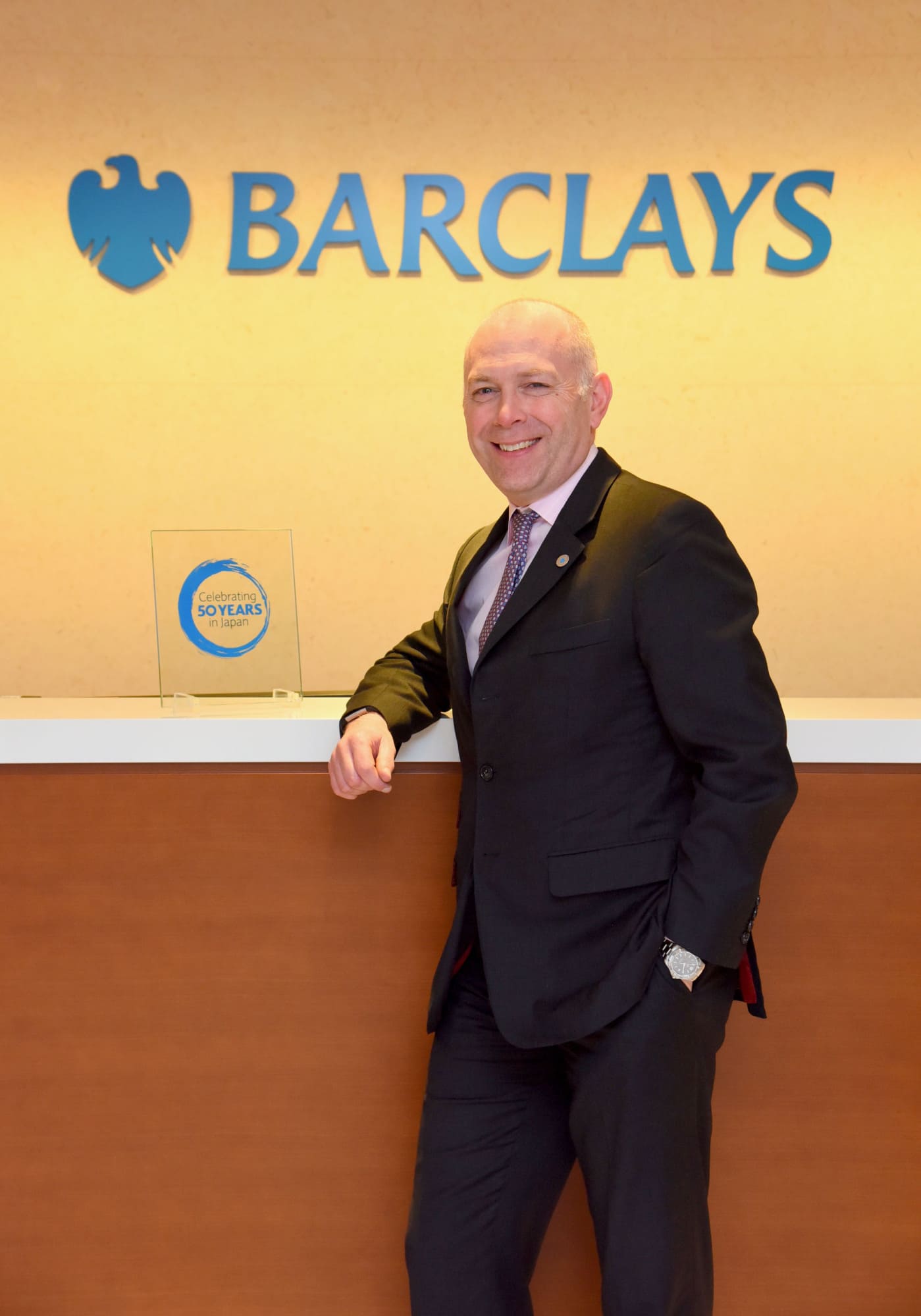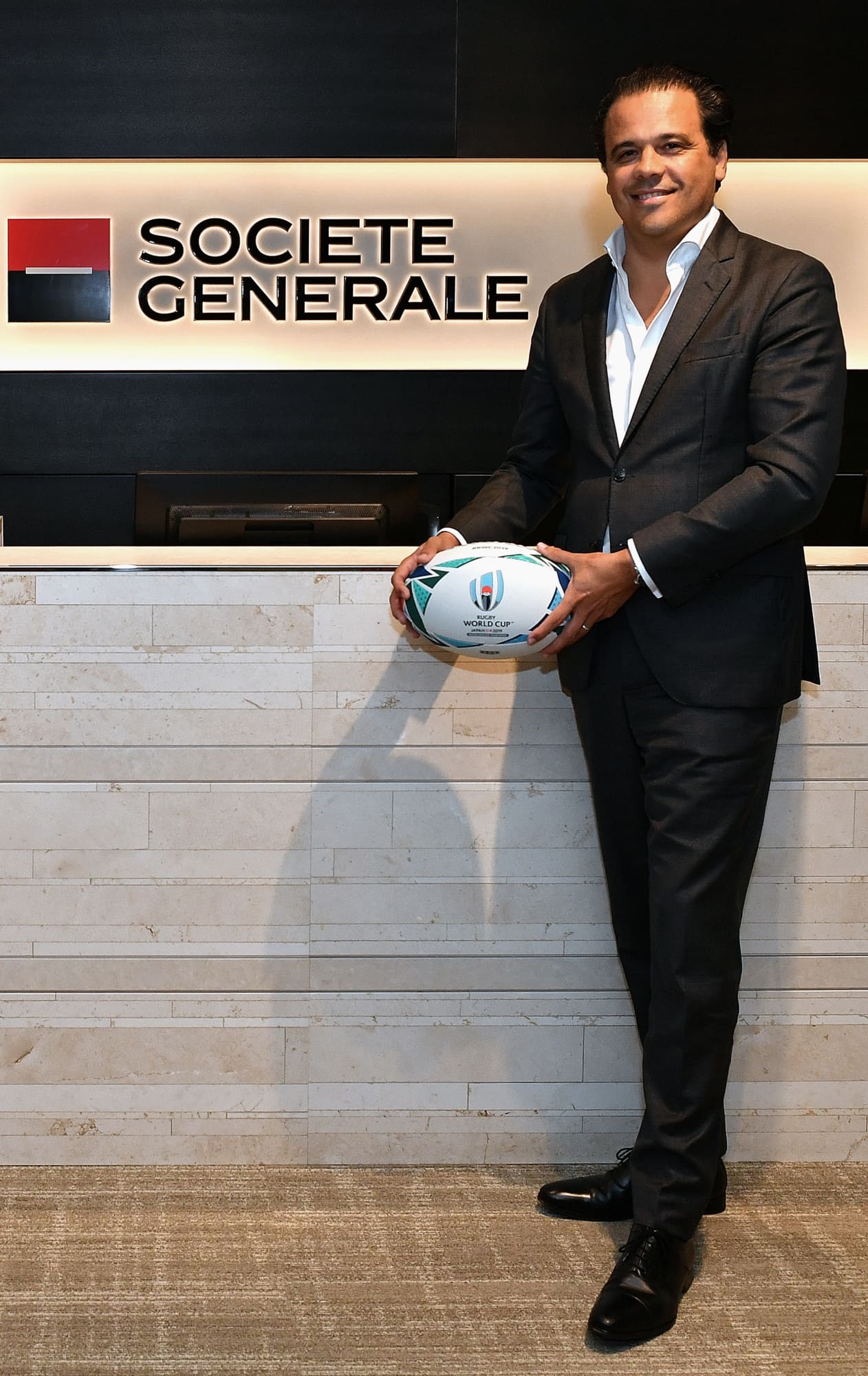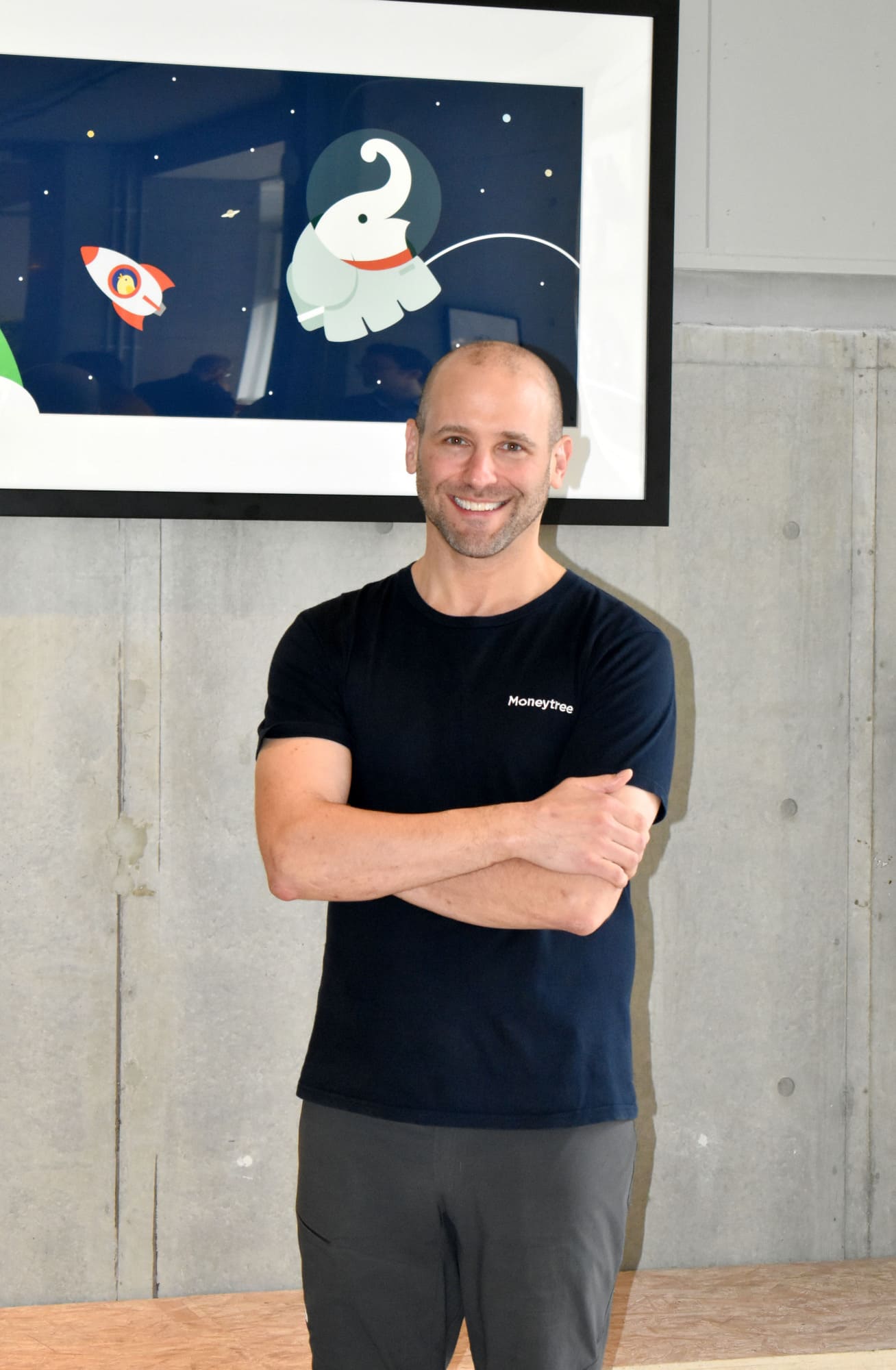
December 29, 2019
Offbeat career driven by desire to continue learning
Moneytree’s Paul Chapman on rejecting complacency in business pursuits
BY JOE MUNTAL
CONTRIBUTING WRITER
- Name: Paul Chapman
- Title: CEO and founder, Moneytree
- URL: https://moneytree.jp
- Hometown: Melbourne, Australia
- Years in Japan: 12 (cumulative)
Moneytree has been a “game changer” for Japan’s digital banking environment, according to Chief Executive and founder Paul Chapman.
The company’s impressive client portfolio, comprised of major financial institutions Mizuho Financial Group Inc., Mitsubishi UFJ Financial Group Inc. and Sumitomo Mitsui Financial Group Inc., among others, certainly attests to the financial tech firm’s footprint. Not complacent with success, however, Chapman has his eyes set on even broader horizons.
“People will tell us we’ve succeeded, to which I reply, ‘No, we’re succeeding.’ We don’t want to be complacent,” Chapman said from Moneytree’s head office in Tokyo’s Nishiazabu district.
Released in 2013, Moneytree’s technology is a personal finance app that connects users’ bank accounts, credit cards and digital money. It uses advanced artificial intelligence to sort transactions and intuitively display all financial activity. The app has been a resounding success, receiving Apple’s Best of App Store award twice.
Moneytree is not Chapman’s first foray in the startup world. In Australia, together with friends from university, he founded cvMail — a provider of web-based recruitment and talent management solutions to law firms and banks — and one of the earliest examples of SAAS (software as a service) applications. The company was acquired by Thomson Reuters in 2007 and Chapman has gravitated toward startup environments ever since. “I’m a hopeless case,” he said.
Chapman’s first job in Japan was one of his few non-startup jobs. It was also where he met the co-founders of Moneytree. After a stint as an information technology director at a recruiting firm, Chapman realized the time had come for him and his partners to start something of their own. “It was my first job in Japan and I had the opportunity to either take a job that offered a lot more money, or take a job where I could learn more; so, I took the learning job,” Chapman said.
For Chapman, software development is a creative outlet. “As a child, I was hopeless with art because I didn’t have the manual dexterity to be good at it. But I had lots of ideas,” he said. “I would draw my ideal underground lair complete with video games and billiard tables and a machine that would connect to someone’s bank account and automatically feed coins into the video game machines. For me, creativity was more about structure and form than drawing something pretty; after all, I’m not a designer.”
This creative drive influenced Chapman to embark on a path unconventional for those with similar educational backgrounds to his own. At university, Chapman studied business and law concurrently. After graduating with a degree in business banking and finance, he left law school in his fourth year to create a startup.
“Like a lot of people in their 20s, I didn’t want to follow the typical path, to put on a suit and go work at Goldman Sachs or somewhere else,” Chapman said.
Considering the success of his startups, it seems clear Chapman made the right choice. Looking back on his decision, Chapman joked: “See mom? I dropped out of law school to do this and it’s been worthwhile.”
It is no coincidence Chapman decided to put down roots — both professionally and personally — in Japan. Walk into Moneytree’s office on any given day and you will find Chapman effortlessly speaking with clients in fluent Japanese. His language ability did not come overnight, but is the culmination of efforts that began nearly 25 years ago.
As a child, Chapman became aware of Japan through brands such as Nintendo and Sony, but his road to fluency began after high school. There was one individual in particular that inspired Chapman to excel at Japanese. This was Jonathan Epstein, now Moneytree’s chairman. Chapman first met Epstein when he was 18. Epstein was working in Tokyo as an aide to a lawmaker in the Diet, and Chapman, who was living in the countryside in Shizuoka, had the opportunity to stay with Epstein while visiting Tokyo. Chapman remembers being blown away by the Japanese ability of Epstein, who is fluent in several languages.
“I thought that if he can do five languages in total, then I can probably do an extra one,” Chapman said. “I decided I was not going to leave Japan until I could speak Japanese fluently. I was a little bit obsessed.”
When Chapman reunited with Epstein at an event 10 years later, Chapman discovered he had surpassed his sensei (teacher). “When I overheard him speaking Japanese, I thought, ‘Oh, I’m much better,’” Chapman jested. “But he is my teacher.”
Whether with mentors or colleagues, personal relationships have played a major role in Chapman’s journey. His experiences in the startup world, as well as living in Japan, have taught him to value every personal interaction, no matter how brief. “I think I’ve become a better version of myself,” Chapman said. “The more people you meet in your life, the less quality time you can spend with each of them. But that doesn’t mean you can’t have genuine moments with those people, so now I try to make the most out of each interaction.”
Looking ahead, Chapman is focusing on personal development. “I want to continue to be qualified to run this company. As the company gets bigger and things get more complex, I will need to keep up,” he said. “For all of us, we view Moneytree as a vehicle for growth and evolution, both professionally and personally. It’s my job to make sure everyone keeps learning and growing.”
Fitness complements tech startup career
Paul Chapman is the CEO and founder of Moneytree, which was founded in 2012 and which released its flagship personal finance app in 2013. He graduated from Monash University with a degree in business, banking and finance. He attended law school for four years before leaving to pursue working in startups. Chapman has developed an illustrious career in software development, including as founder of cvMail, which was acquired by Thomson Reuters in 2007.
Chapman started learning aikido in high school, practicing it for over 20 years. However, due to the demands of fatherhood and founding a business, he was forced to give up the hobby. Now Chapman stays in shape at the gym, as well as by participating in mochitsuki (rice cake pounding) at his son’s school. In addition to the satisfaction he gets from Moneytree’s significant progress, Chapman is inspired every time his son says “kakkoyokatta” (you were cool) after he pounds the rice with a large wooden mallet.


